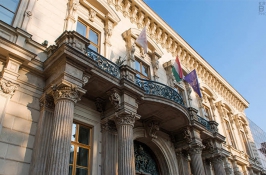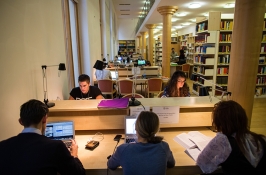"Who rules East Europe commands the Heartland. Who rules the Heartland commands the World-Island. Who rules the World-Island commands the world..." This was the famous passage from the book "Democratic Ideals and Reality" by the British geographer Halford Mackinder in the first half of the 20th century. It was also recited at the beginning of the conference "Geopolitics in Central and Eastern Europe" by the Head of the Centre for Diplomacy at Andrássy University Budapest, Dr Heinrich Kreft. Kreft made clear to the conference participants the importance of the region in the foreign policy of both regional and global powers due to its geographical location. Numerous transport routes run through the states of Central and Eastern Europe, which are of strategic importance (if not vital) for practically all countries on the Eurasian continent. This could explain some global developments in the region. The aim of the conference was to find out the positions of the different parties on the changes in the region. For this purpose, experts from different countries gathered in the Hall of Mirrors at Andrássy University in Budapest.
The first panel of the conference focused on the interests and relations with the Eastern and Central European countries. Maxim Samorukov, Fellow of the Carnegie Endowment for International Peace, explained Russia's position. Samorukov pointed out that Russia has had different relations with countries in the region since the beginning of the war. Slovakia, for example, meets most of its needs with Russian gas and receives transit revenues from the transport of Russian gas through Slovakia. In Bulgaria, the prime minister refuses to pay for Russian gas imports in rubles, but other parties are against it. All in all, any cooperation with Russia was in question under the current circumstances. Russia's soft power was already limited in the region, and the war had destroyed it. The German view was presented by Dr Stefan Mair, Director of the Stiftung Wissenschaft und Politik (SWP) in Berlin. He said that the EU had several informal alliances such as the V4 countries, Craiova Four, transatlantic cooperation, etc. They have gained in importance, but become problematic when they combine several policy areas. This is the case with the V4 states. The current crisis shows how necessary it is for the EU to develop its own security strategy, it must take on more responsibility in the area of security. Prof. Dr Hüseyin Bağcı, President of the Institute for Foreign Policy in Ankara, explained Turkey's point of view. Bağcı described Turkey-Russia-Germany as a "Bermuda Triangle", all countries in between depend on relations with these countries, so Russia, Germany/EU and Turkey are permanent power centres, their international role is crucial and their geopolitical position overshadows criticism of democracy and freedom. It is important that Turkey stands by the EU (not forgetting that Turkey is a member of NATO). EU membership (unfortunately unrealistic) is not Turkey's main goal, but Turkey remains in Europe. Currently, there is no fundamental change in Turkey's policy towards Russia. Dr. Lirong Liu, lecturer at Fudan University in Shanghai, divided China's relations with Central and Eastern European countries into three periods. In the first period, from 1949 to 1989, relations were cultivated within the framework of the socialist bloc. From 1990 to 2012, the second period, relations were characterized by the rapprochement and accession of Central and Eastern European states to the EU. Since 2012, the focus has been on the "17+1 Initiative". The point is now on economic, regional and multilateral cooperation. Although cooperation with CEE countries is increasing, Chinese direct investment in the UK, Germany and Italy is much higher.
The second panel discussion presented the views of some countries in the region. The former Serbian Prime Minister for European Integration, Suzana Grubješić, referring to the Western Balkan countries, said that the EU is losing influence in the region, which is being taken by external actors such as Russia, China and Turkey. China is actively investing in the region, she said, and it is difficult to make a clear assessment of these actions - to see China as an opportunity or as a threat - which are probably one and the same. Alena Kudzko, Director of the GLOBSEC Policy Institute in Bratislava, explained the position of the Visegrád Group countries. Hungary disagrees with Slovakia, the Czech Republic and Poland on many points. There are also differences of opinion in the V4 group. It is a pragmatic rather than a consensus-oriented group. "We talk about issues that unite us", so there is no talk about Putin, Russia or other issues on which there are different opinions - sympathies for Russia are a point of contention. Hungary's position within the EU does not find a majority in the V4 group, especially in Slovakia. All V4 countries are currently trying to build better relations with the United Kingdom. The war in Ukraine touches on many regional and domestic issues, the elections in Slovakia and the Czech Republic would have turned out very differently if they had taken place today, and it is important that governments address economic issues first and foremost. The Director of the Expert Forum (EFOR) Dr. Sorin Ioniță from Bucharest spoke about the Southeast European perspective. He said that the war in Ukraine was not about NATO enlargement, but was an ideological war about Europeanisation, Western values, etc. Southeast Europe does not buy into Putin's narrative, but the countries are afraid. Some problems have been solved, there is important progress, but there is still a lot of fighting. The difficulties with Russia have to do with the colonial power of the Soviet Union, there has been a continuous line of expansion in foreign policy since the Tsarist era. China, on the other hand, did not show much interest in the region; there had been high expectations at the beginning, but in the end Chinese involvement was hardly reflected in the economic statistics.
At the concluding panel discussion under the central question "What does the Russian attack on Ukraine mean for Central and Eastern Europe?", most participants agreed that NATO was by no means "brain-dead", as was recently argued, but was once again assuming a role similar to that of the Cold War era. The EU is also very capable of dealing with external challenges, but internal disagreements and internal problems are more difficult to deal with. The nature of the political problems changed abruptly with the break on 24 February 2022.
Schilan STACH | Lisa STOFFERS | Eldaniz GUSSEINOV
The event was organised with the support of the European Office of the Konrad Adenauer Foundation. You can watch the recording of the conference here: Day 1 and Day 2.



 ETN
QuickLinks
Contact
ETN
QuickLinks
Contact
 Start Your Studies!
Scholarships
Degree Programmes
PH.D. Programme
Admission
Alumni Association
Start Your Studies!
Scholarships
Degree Programmes
PH.D. Programme
Admission
Alumni Association
 Subscribe to our newsletter
Subscribe to our newsletter






